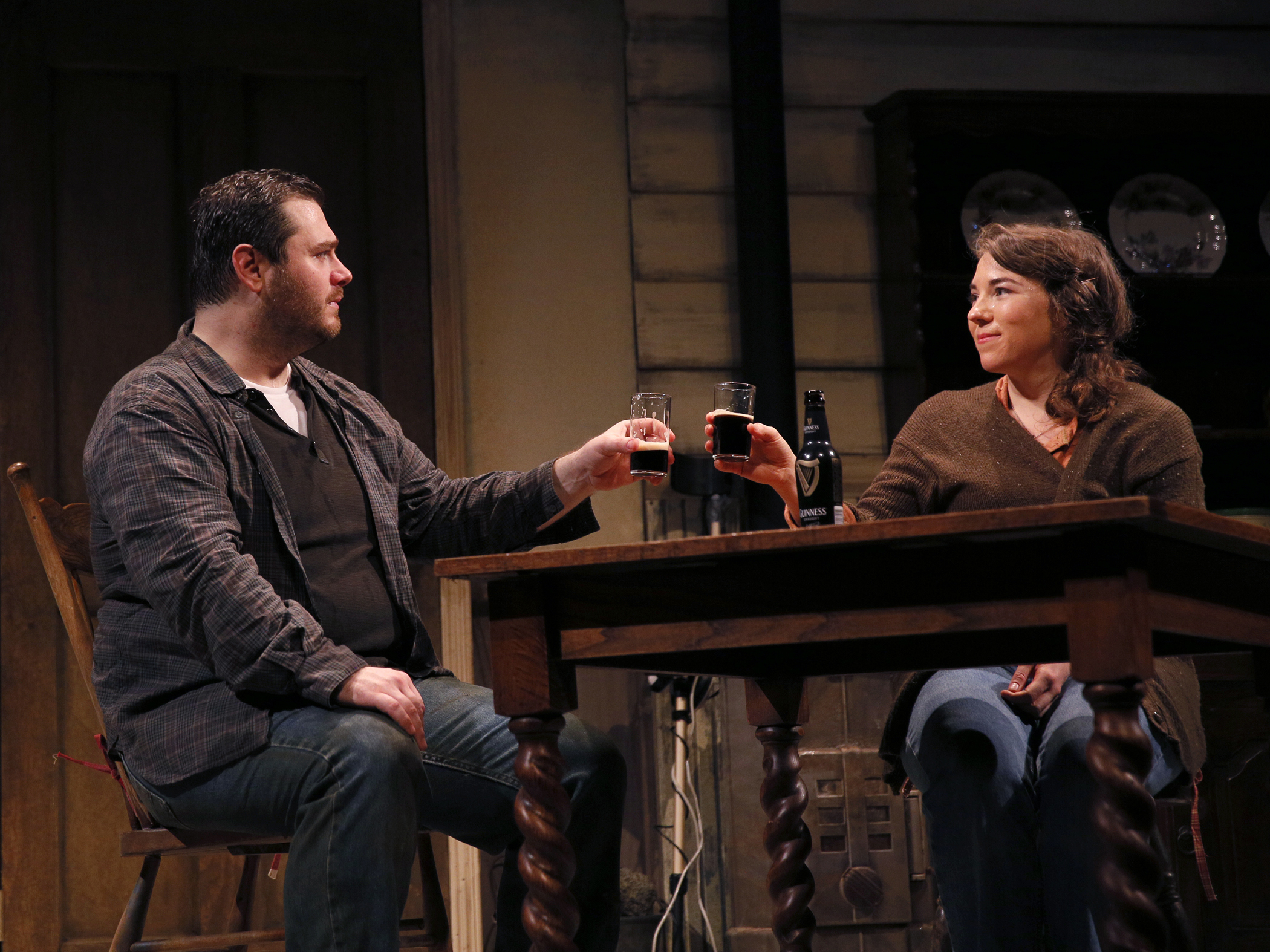Few will forget the extraordinary ending director John Langs added to his 2010 Hamlet, in which—after umpteen poisonings and stabbings effectively eradicated the royal house of Denmark—Hamlet and his father, both dead, walk away together in peace. It filled an emotional story hole that we hadn’t realized existed, because it occurs at the end: What happens next? Also directing for Seattle Shakespeare Company, Langs’ mesmerizing new Othello offers another apocryphal emotional glimpse—this time, What happened before?
The mood-setting preface depicts Othello (Sean Phillips) and Desdemona (Hillary Clemens) marrying. In African-influenced costumes by Doris Black, they enter alone (but for one attendant) and enact with a candle a ritual inhaling of each other’s souls. It establishes the world-eclipsing depth and insularity of their relationship—as well as its kindness and intimacy, freed from their respective clans. This anchoring for everything that follows offers a far richer basis for future jealousy than Shakespeare’s racial alarm bells, which provide no sense of what a mystical love is at stake. (Robertson Witmer’s barely audible music and Manchurian Candidate-like sonic triggers lend further intriguing notes of magic in a text known for having none.)
In short order, the union is raked over coals of racism and envy on Jennifer Zeyl’s brazier-like stone set, perforated with doorways and a window for spying. Darragh Kennan’s Iago gracefully weaves through factions of General Othello’s fans and detractors: He’s precise and detached, fanning their loathing and trimming their admiration. Langs constructs efficient contexts for conversation, e.g., a workout session in which Othello’s and Iago’s push-up rhythms speak volumes of their power dynamics. Other subtle shadings of the text come from Trick Danneker as squeaky fop Roderigo, Quinn Franzen as debauched paragon Cassio, and Alexandra Tavares as Iago’s tragic wife and accomplice Emilia (here given a particularly jaundiced take). Clemens, too, packs unexpected complexity into Desdemona’s maturation from lucky girl into the stoic partner in an abusive marriage. (Her multivalent “I am a child to chiding” slayed me.)
Phillips’ initially understated Othello seems to double in size when the telltale hankie—planted “proof” of Desdemona’s infidelity—hits the fan. His rage is simultaneously fearsome and pitiable, part angry bull, part self-blaming schoolboy. Later, with Desdemona in their bath and boudoir, Othello’s homicidal pursuit also registers as masochism for not feeling worthy, for doubting her. There’s a psychological truthfulness reminiscent of a Hitchcock thriller in this long, difficult scene, which includes a wrenching water-cure for the fire within.
This riveting production casts spells you don’t want to miss.
stage@seattleweekly.com
OTHELLO Cornish Playhouse at Seattle Center, 733-8222. $25–$48. Runs 7:30 p.m. Wed.–Sat. plus some weekend matinees and Sun. evenings; see seattleshakespeare.org for schedule. Ends May 17.








